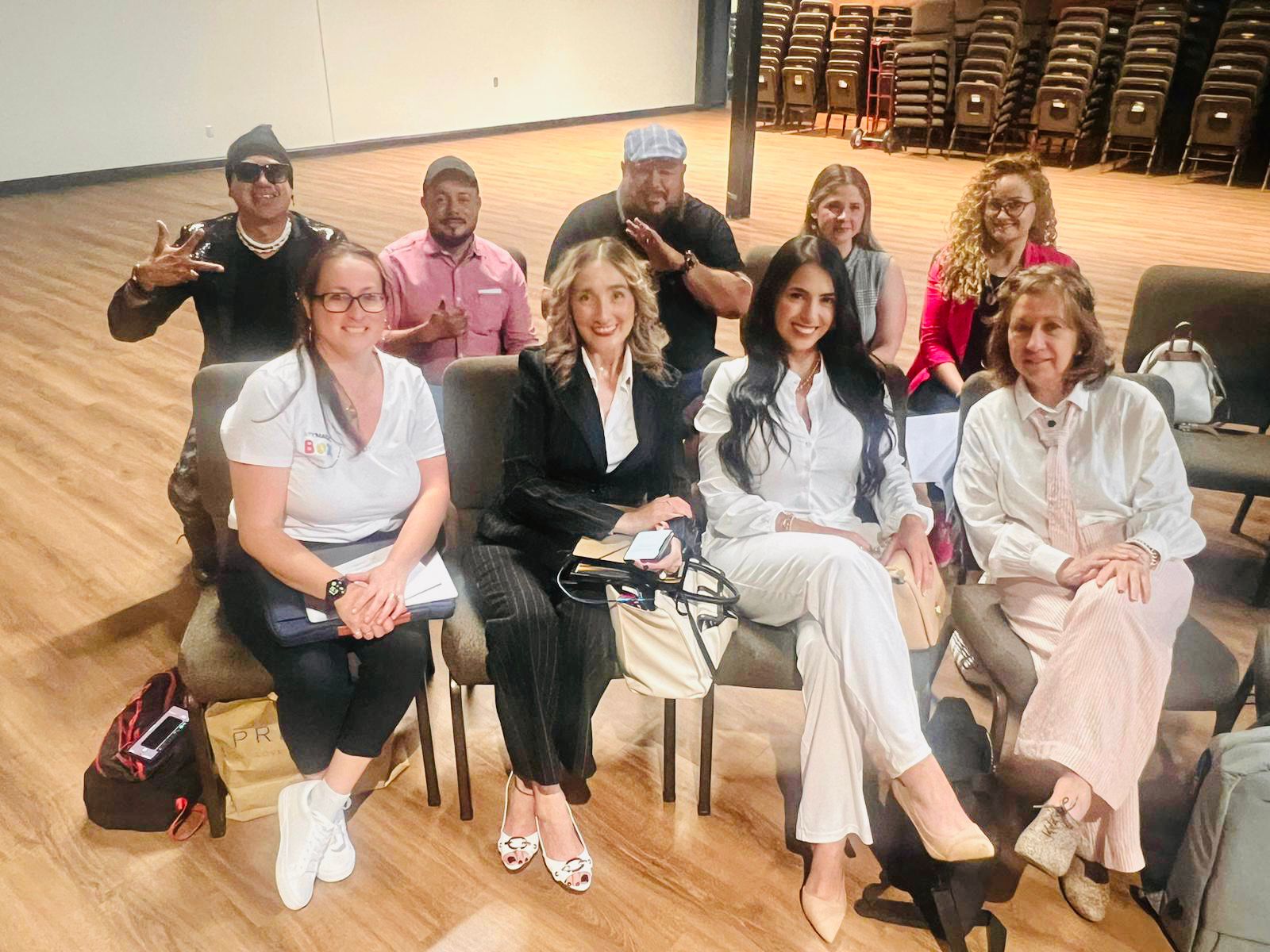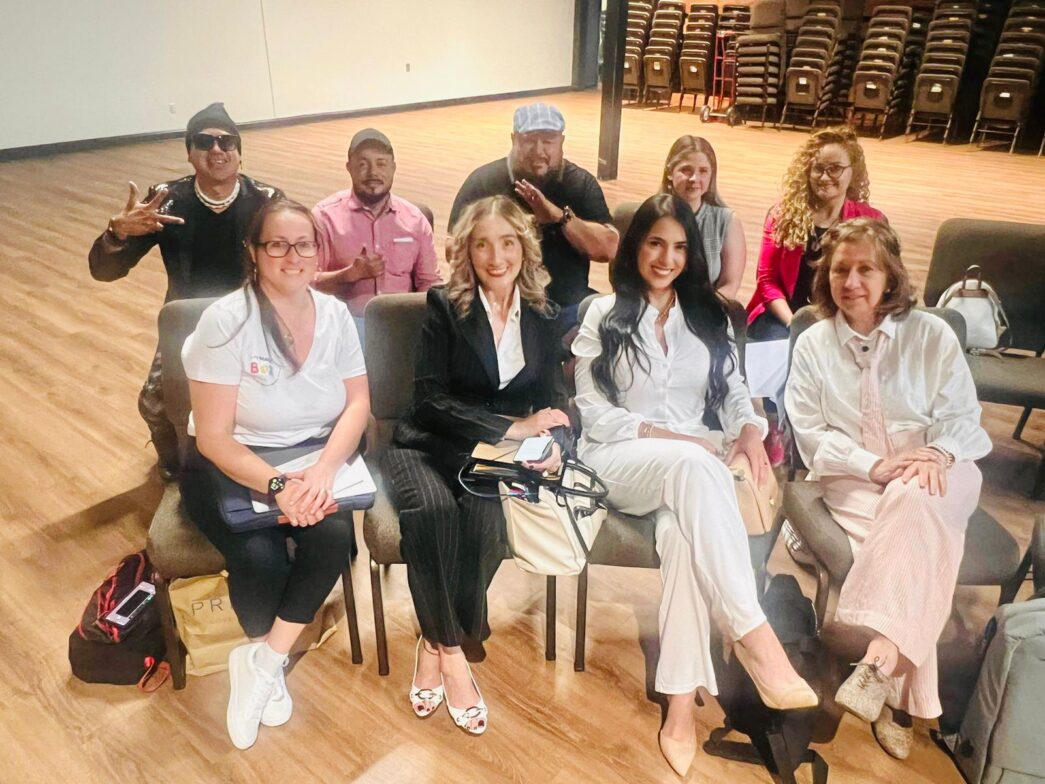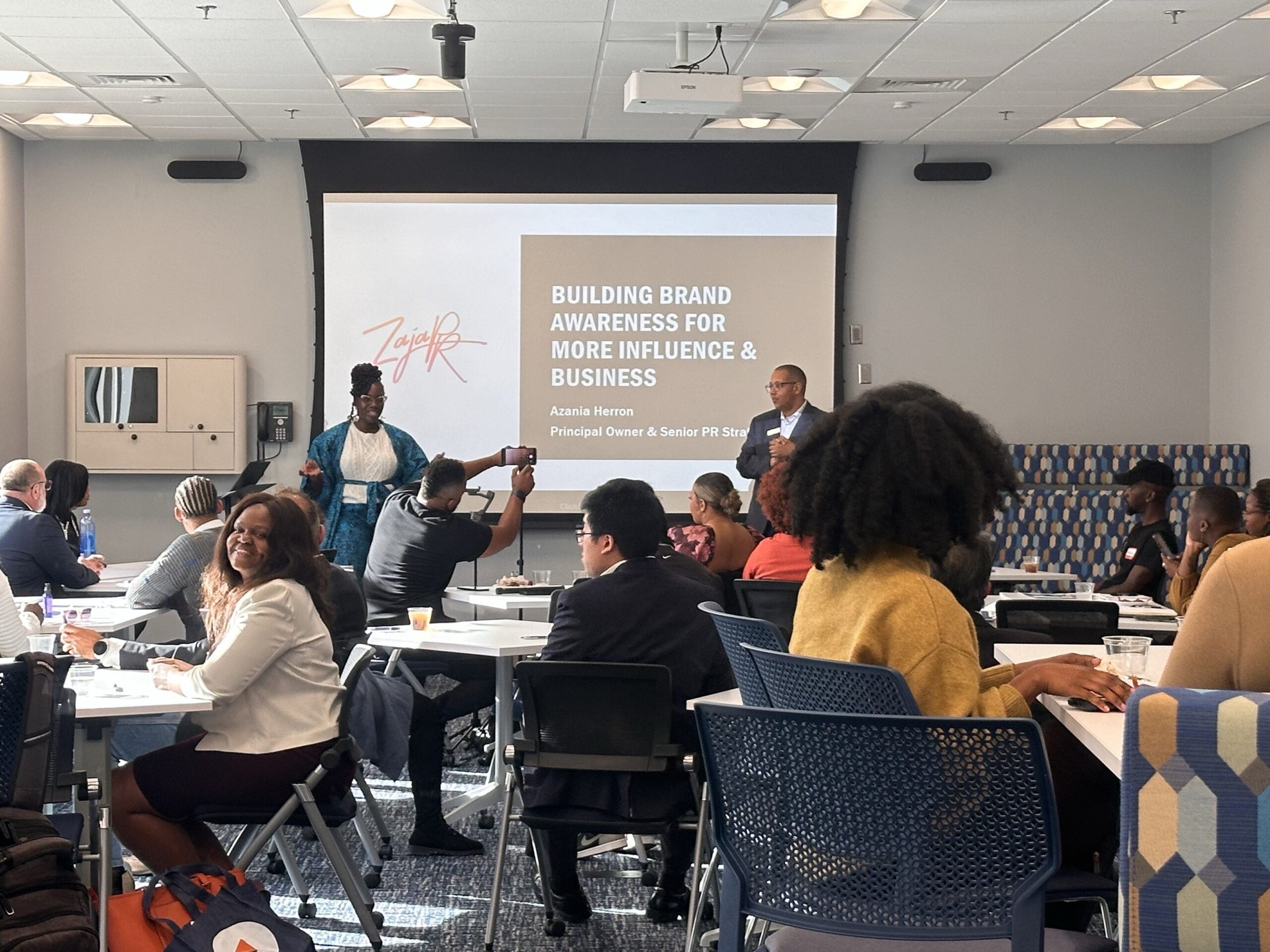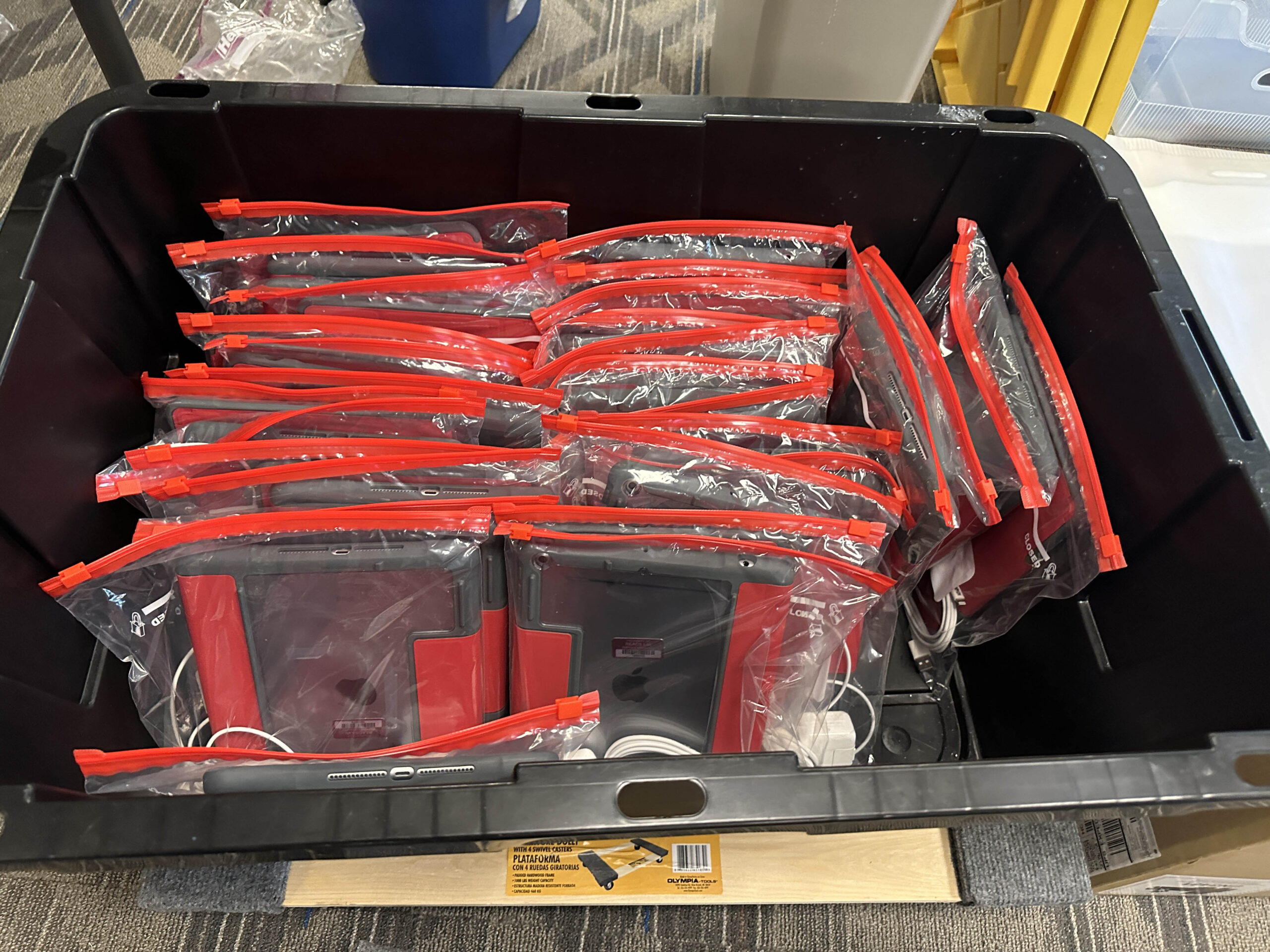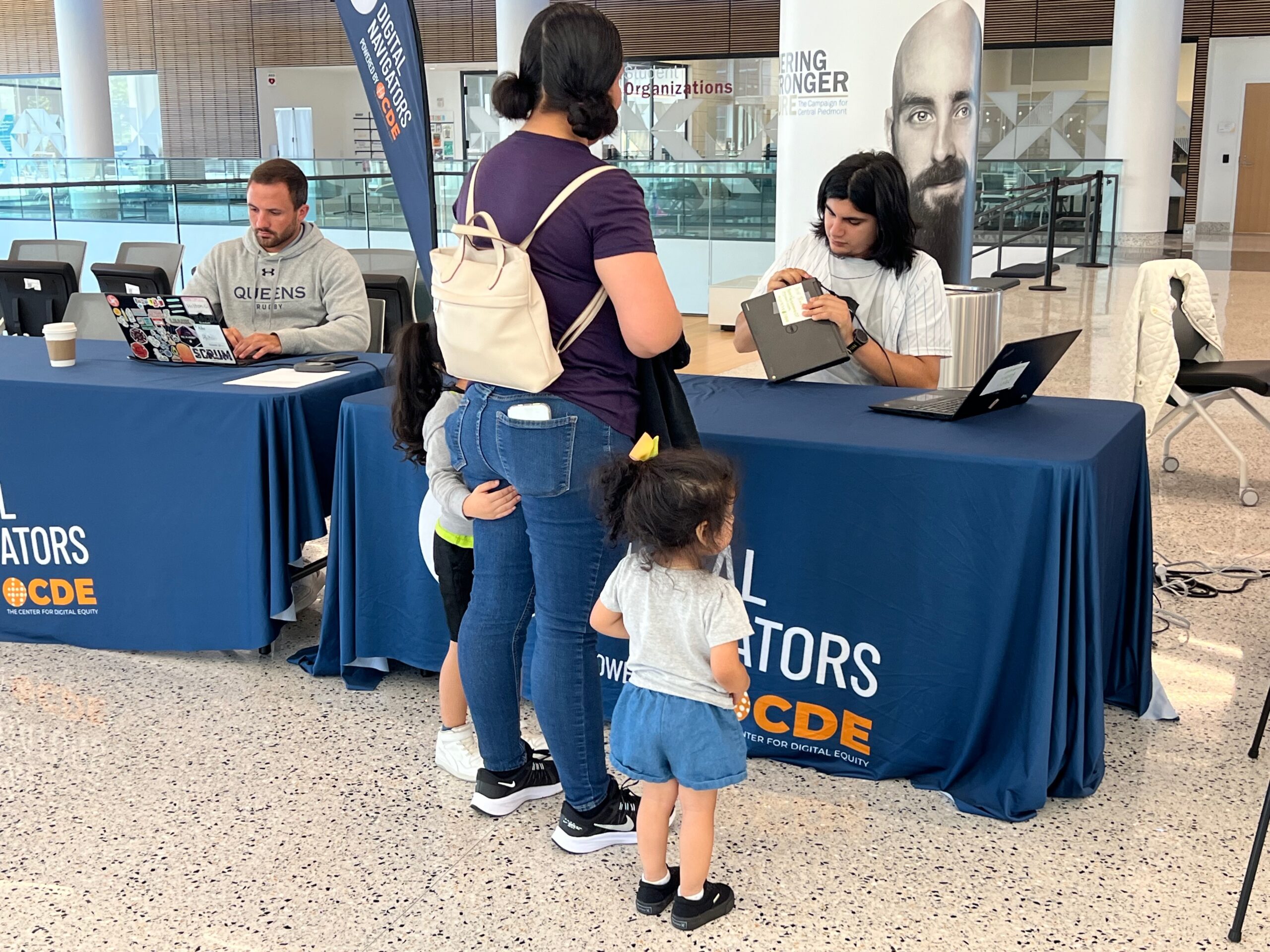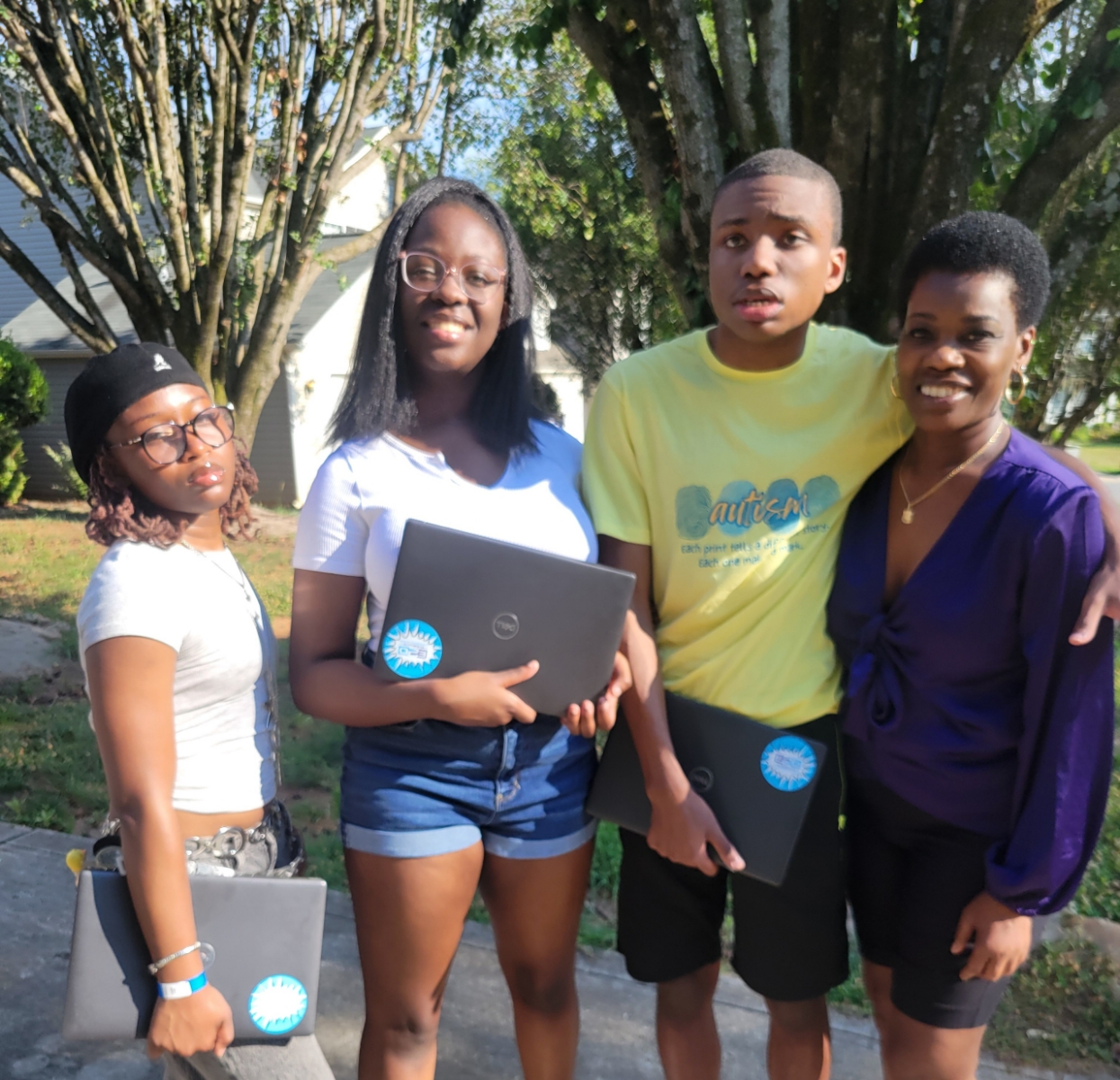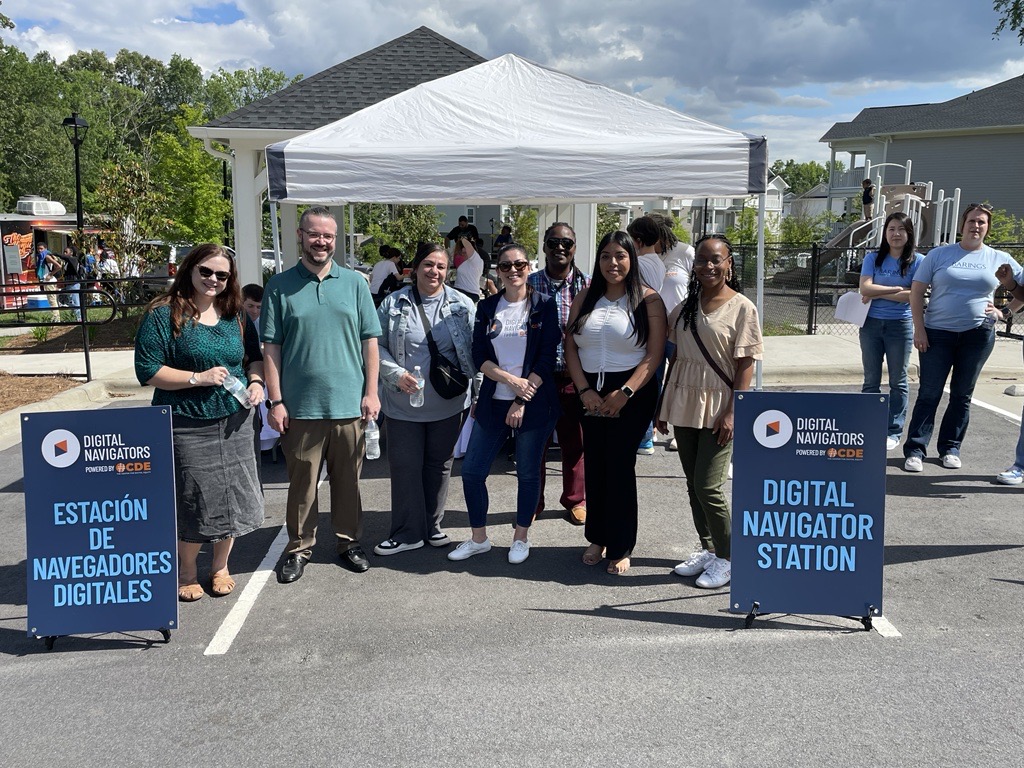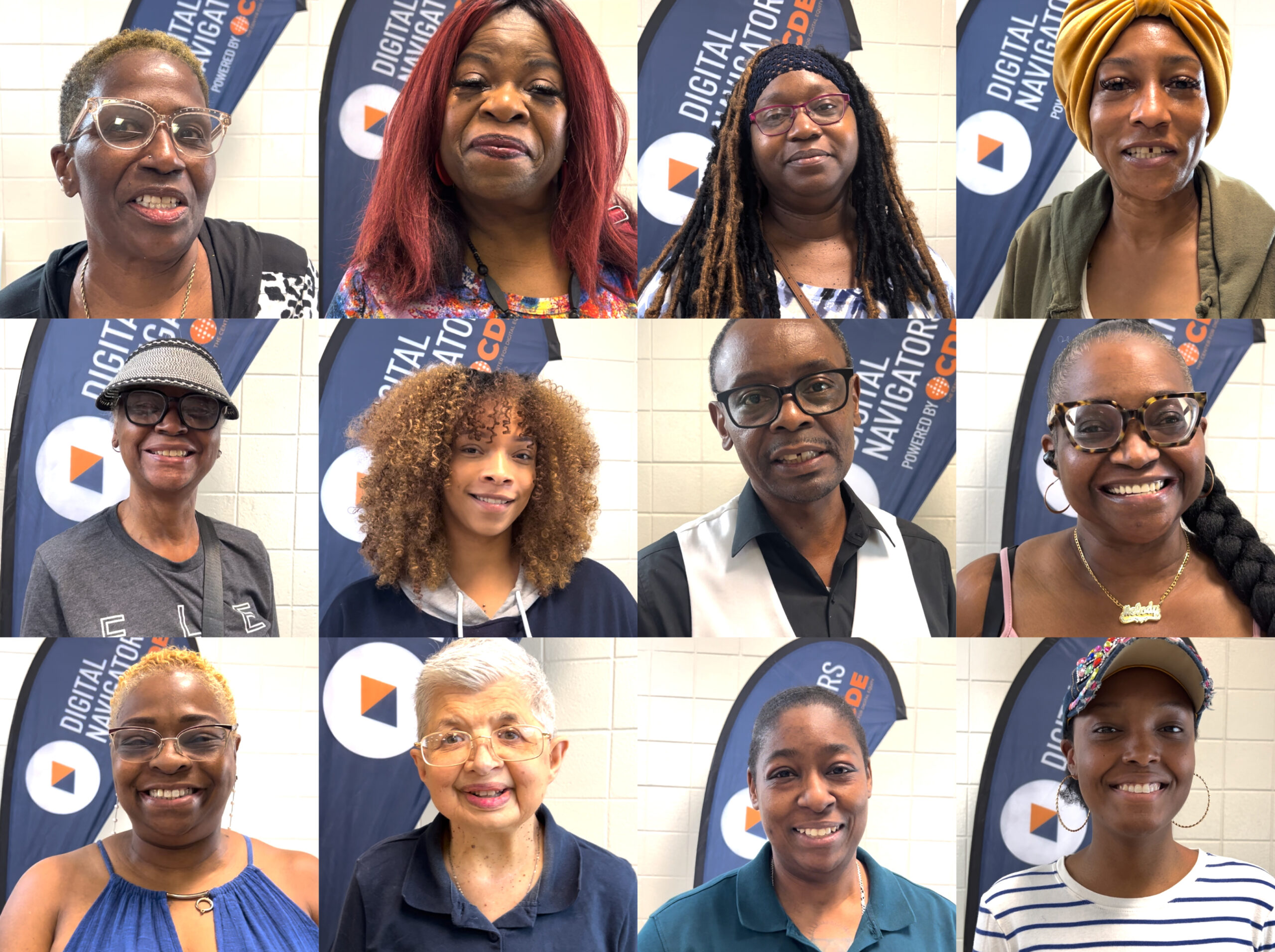
Impact Story
The latest about digital inclusion in Charlotte and CDE’s direct impact
Every resident should have the opportunity to contribute to the economy of the region and support their family, too. But full workplace participation can be difficult, especially for minority communities. In addition to the usual barriers to employment and entrepreneurship, minority communities face additional challenges when it comes to language, digital skills, and connectivity.
One organization taking these challenges head-on is Arriba, one of the service arms of Camino. Camino is a non-profit helping to equip people to live healthy, hopeful, and productive lives, focusing on the local latinx community.
Arriba, for its part, is a service that connects forward-thinking business owners with dependable and motivated employees. A large part of their activity focuses on educating the Latinx population, providing classes on important business skills as well as entrepreneurship. Today, digital skills are naturally a part of what would be considered business skills, and so Arriba saw the need for providing both digital training and access.
Thus began the collaboration between Arriba and the CDE. One of the CDE’s goals is to make Mecklenburg County the most digitally equitable community in America, and to thus serve as a model for other communities as well. This includes getting the word out about digital skilling opportunities, as well as overcoming barriers having to do with a lack of devices and connectivity.
The collaboration started with a casual conversation—literally. Nori Maldonado, Camino’s workforce development coordinator, attended the TechRising Summit and found herself in conversation with CDE’s Deputy Director, Natali Betancur, who was also present. (TechRising, an initiative led by the AvidXchange Foundation in partnership with 20+ local corporations, also strives to bridge the digital divide and make Charlotte the most digitally inclusive community in the U.S. They do this through strategic engagement with the Center for Digital Equity, government, academic and nonprofit partnerships.)
Maldonado and Betancur shared not only a desire to promote digital equity, but latina roots as well. Maldonado recalls, “We [Natali and I] got to talking about the different programs and how to break down barriers. At one point I leaned in and I asked: ‘What do you [the CDE] have for us, for our (Latino) community?’ Since then, we’ve been working together.”
Sometimes, progress is as simple as that—but such chance encounters also show how important it is to have shared spaces that can help create and foster collaboration across organizations.
Entrepreneurship
Over the years, Arriba has developed a course on entrepreneurship; in its most recent format, the 16-week course culminates in a context “much like Shark Tank.” Students work on a business idea and develop all aspects of it, including marketing, financing, and more. The students then present their ideas to a panel, acting as potential investors. Students that complete the course are able to keep their laptops to continue their work, and the winner of the contest also receives a prize—in the last rendition of the contest, that prize was $7000 for seed capital.
“It was a great [learning opportunity]—we were given all the tools we would need: Marketing, financial strategies, everything,” says Krucheska Vasquez, winner of this year’s contest, via a translator. “[In the course] we learn how to make a business plan, including the financial plan, to make all things happen.” Vasquez’s business was a product called Magic Box, a kind of kit or subscription box with academic tools and elements for neuro-divergent children.
As this course evolved, it became clear that having the necessary digital skills was a barrier for this population to pursue their dreams of starting a business. “When we started thinking about the project and how to present these ideas to investors, we discovered that some of [the students] did not even know how to use PowerPoint,” recalls Nori Maldonado, Camino’s workforce development coordinator. “And those communications skills—those are so important.”
Another way in which the CDE and Arriba are partnering to meet this gap is through instructional materials, with Arriba choosing the CDE’s LMS NorthStar to deliver digital skills content to over 150 students across several programs. This content is removing yet another barrier that members of the Latinx community face when it comes to participating in the modern economy.
When we asked Vasquez specifically about the difference the course made for her, she is very clear about the benefits. “This has impacted my family tremendously,” she says via translator. “It was a very intense program—16 weeks. [But in that 16 weeks] we were able to take our ideas, get training and tutoring, and eventually take our ideas to fruition.
“We were this group of adults trying to make things better for our families and have an impact on the community at the same time. It was wonderful.”
Working with the CDE
When asked how it was collaborating with the CDE, Maldonado says “It has been amazing. They support us and all our ideas when we need something from them. They have an amazing team and we love to work with them.”
In the future, Arriba and Camino plan to work with the CDE even more closely. For example, they are in the planning stages for a mobile classroom, and they have already expressed their desire to work with the CDE to provide resources and help to make this happen.
For our part, we here at the CDE are happy to serve these residents, and have been thrilled to see all of the creative ideas they are bringing to the business community in our city and our state. And we can’t wait to see what future contest winners come up with!
